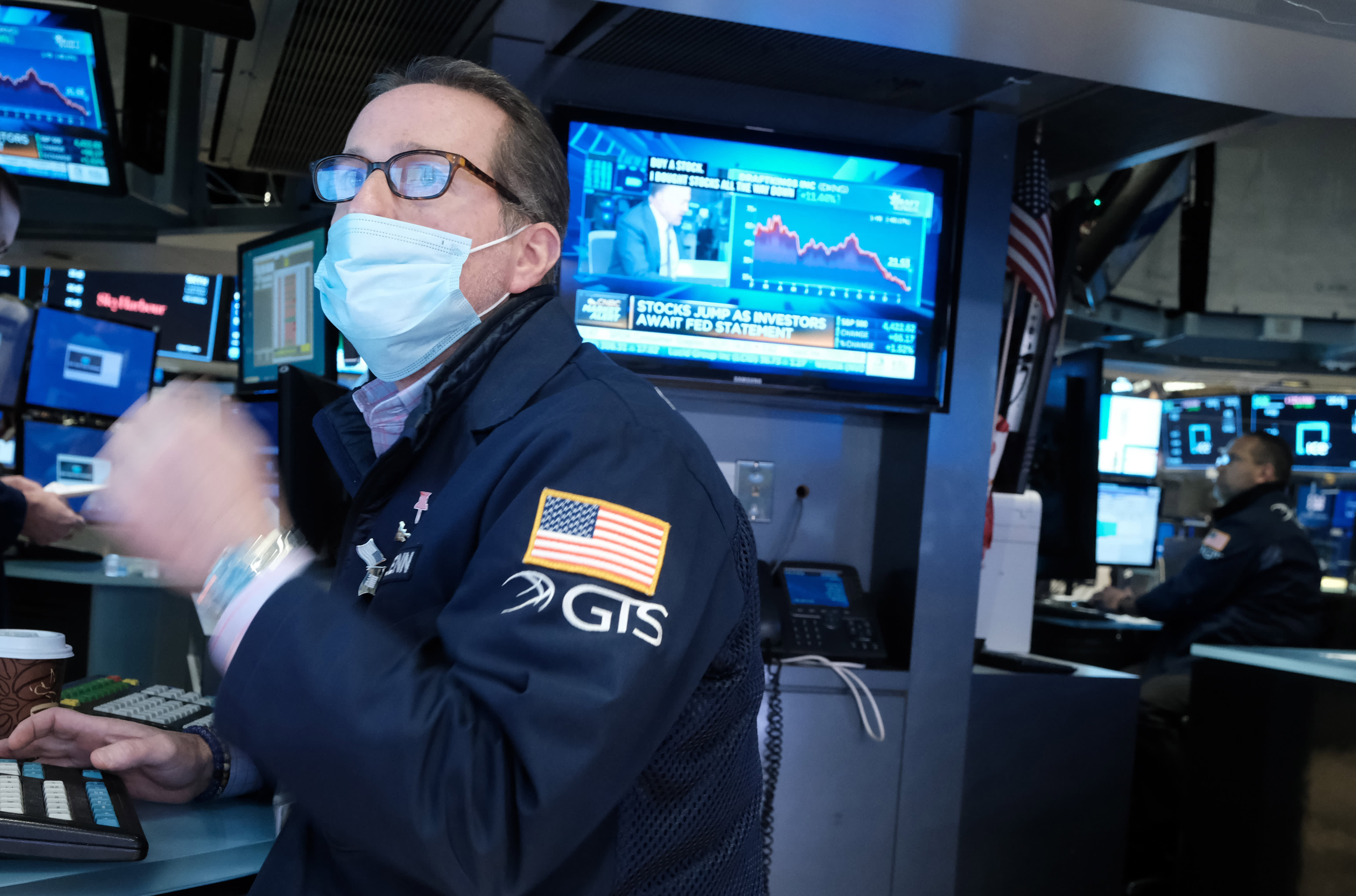Dow slips as investors weigh Russia-Ukraine tensions, Fed’s next move

Traders work on the floor of the New York Stock Exchange (NYSE) on January 26, 2022 in New York City.
Spencer Platt | Getty Images
The Dow Jones Industrial Average moved lower on Monday as investors evaluated tensions between Russia and Ukraine as well as the policy shift for the Federal Reserve.
The Dow fell about 200 points, dragged down by losses in Cisco and Chevron. The S&P 500 fell 0.5%, while the technology-heavy Nasdaq Composite fell 0.1%.
St. Louis Fed President James Bullard told CNBC on Monday that the central bank needed to fight inflation more aggressively, echoing comments he made last week that pressured the stock market.
“I do think we need to front-load more of our planned removal of accommodation than we would have previously. We’ve been surprised to the upside on inflation. This is a lot of inflation,” Bullard told CNBC’s Steve Liesman during a live “Squawk Box” interview.
“Our credibility is on the line here and we do have to react to the data,” he added. “However, I do think we can do it in a way that’s organized and not disruptive to markets.”
The Labor Department reported Thursday that inflation in January surged 7.5%, its biggest 12-month gain since 1982.
“My interpretation was not so much that report alone, but the last four reports taken in tandem have indicated that inflation is broadening and possibly accelerating in the U.S. economy,” said Bullard in reference to last week’s hot CPI report.
Markets are now expecting a 50 basis point, or 0.5 percentage point, increase at the central bank’s March meeting.
Economists at Goldman Sachs also raised their Fed forecast to seven hikes for 2022, and said it sees the 10-year hitting 2.25% this year. The firm also lowered its 2022 S&P 500 price target to 4,900 from 5,100. That would represent just a 2.8% return from where the benchmark ended 2021. Goldman said that higher rates will crimp valuations.
“The outlook for global equity markets remains weak in our view, with markets under pressure not just because of rising bond yields globally and the prospect of rate hikes, but also geopolitical tensions,” said David Sneddon, technical analyst at Credit Suisse.
Investors are also grappling with a potential war between Russia and Ukraine. A phone call over the weekend between U.S. President Joe Biden and Russian President Vladimir Putin, in which Biden attempted to dissuade Putin from attacking Ukraine, failed to achieve a breakthrough.
Some airlines have also halted or redirected flights to Ukraine amid the brewing crisis, while the Pentagon ordered the departure of U.S. troops in Ukraine.
Sentiment was helped following comments from Russia’s Foreign Minister Sergey Lavrov to Vladimir Putin in Moscow that suggested Russia would continue diplomatic talks with the West over Ukraine, lowering tensions a bit following a market sell-off Friday.
The VanEck Russia ETF rose more than 2% on Monday after losing more than 7.5% on Friday.
“The real fear is that China backs Russia and the relationship between China and the U.S. continues to deteriorate,” said Robert Cantwell, chief investment officer at Upholdings. “How it changes the U.S. relationships with the other economic superpowers – that’s what’s really scary and would affect economic outcome.”
On Friday, the major averages declined as the White House warned that a war in Ukraine could begin “any day now” and urged Americans there to leave “immediately.” Oil prices jumped Friday, along with traditional safe havens like Treasurys.
Earnings are expected to ramp up again this week, with Nvidia, Walmart, Shopify, AMC and more scheduled to report.




